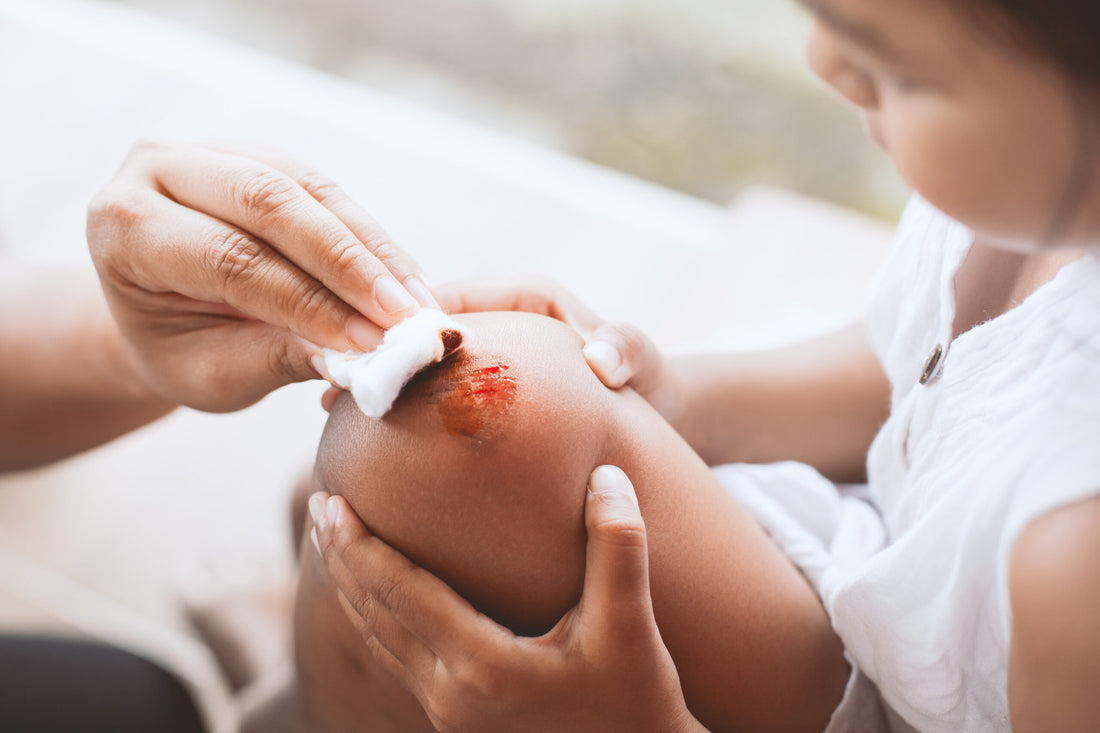An antiseptic cream works to destroy harmful microorganisms which cause infection and illness. Not all antiseptics work in the same way. Some target the walls of microorganism cells causing them to burst. Others help prevent harmful germs from replicating so they eventually die.
Pharmaceutical antiseptics contains active antiseptic ingredients, such as Cetrimide and Chlorhexidine Digluconate. These chemicals destroy the cellular structure of fungal and bacterial microorganisms and inhibit their spread.
Lots of pharmaceutical antiseptics exist, they’re commonly found in first aid kits. Antiseptics are a convenient way to inhibit bacterial growth, they are one of most regularly used medicinal products. Unlike antibiotics, antiseptics can be used to treat fungal infections and viruses. Antibiotics only target bacteria.
Some of the ways antiseptic creams can be used include treating:
- Cuts & grazes
- Minor burns & scalds
- Spots
- Insect bites & stings
- Blisters & sores
- Chapped skin
- Sunburn
However, pharmaceutical antiseptics contain chemicals which can cause dangerous allergic reactions. And some people choose to use natural alternatives, to avoid unnessecary contact with chemical ingredients. One such natural alternative is propolis.
Propolis is a Natural Antiseptic
Propolis is made by honeybees from plant and tree resins. They use to to defend the hive from infection by blocking up holes and by ‘mummifying’ potentially harmful foreign bodies.
In its raw state, propolis is a sticky substance. The bees combine plant resins with wax and other organic compounds, processing it in the hive. It’s so sticky that it’s sometimes called ‘bee glue’!
As with honey which has a long history of medicinal use, propolis has been widely used as a natural medicine for thousands of years. Ancient civilisations such as the Egyptians and Romans used propolis. And while in the West propolis has often been overlooked, it has been consistently used in areas like Brazil and Asia for centuries.
In recent years the medicinal properties of propolis have been rediscovered. Leading universities are actively researching the amazing health benefits of propolis.
As mentioned above, antiseptics target a broad spectrum of potential pathogens. These include bacteria, viruses and fungi. Research has shown that propolis is effective in combating these sources of infection.
Propolis is Antibacterial
Propolis has antibacterial properties. Research shows that it is able to inhibit bacterial growth and break down the biofilm bacterial infections product to defend themselves. Unlike pharmaceutical antibacterial drugs, propolis doesn’t harm the friendly bacteria in our bodies.
And what’s more, propolis actively reverses the problem of antibiotic resistance. Research suggests that propolis can make drug-resistant bacteria susceptible again.
Propolis is Antiviral
Viruses are a major cause of illness. Research continues to demonstrate that propolis is antiviral, even against viruses such as COVID-19. This antiviral activity centres around the capacity of propolis to prevent the attachment of viruses to host cells in the body.
Propolis is Antifungal
Other conditions can be caused by fungal infections – such as nappy rash and thrush. Propolis is known to be antifungal, helping treat such conditions without pharmaceutical chemicals.
Propolis is Anti-inflammatory
Inflammation is a normal immune response to infection or injury. But too much inflammation can be harmful. Propolis is anti-inflammatory. It helps reduce the negative impact that inflammation can have on our bodies.
How to Use Propolis as a Natural Antiseptic
Propolis Cream is a great way to use propolis as an antiseptic product. Our Propolis Cream is made with propolis extract, which has a high concentration of healing flavonoids. It can be applied directly to the skin, soothing cuts and grazes, insect bites, blisters and so on. Propolis Cream doesn’t contain any added colours or scents – no nasty chemicals at all. It’s the perfect pocket-sized propolis product!

Alternatively, Propolis Capsules can be taken to treat sources of infection from the inside. Sometimes health problems like acne can be caused by a source of infection within the body. Treating the symptom of this kind of infection can be a fruitless exercise. By taking propolis internally, it’s medicinal properties can get to work on the actual source of infection.
Conclusion
In recent years, lots of us have begun looking for natural alternatives to all kinds of pharmaceutical products. We’re more aware of the food we eat, the water we drink and the products we put on our skin and into our bodies. It’s only natural that chemical-free health products would become a priority for many consumers.
Just as with pharmaceutical antiseptics, propolis is:
- Antibacterial
- Antiviral
- Antifungal, and
- Anti-inflammatory
Propolis makes a great natural antiseptic – in the form of a cream or capsule.
This post is for information only and is not intended as medical advice. If you have an infection you should speak to a doctor.

